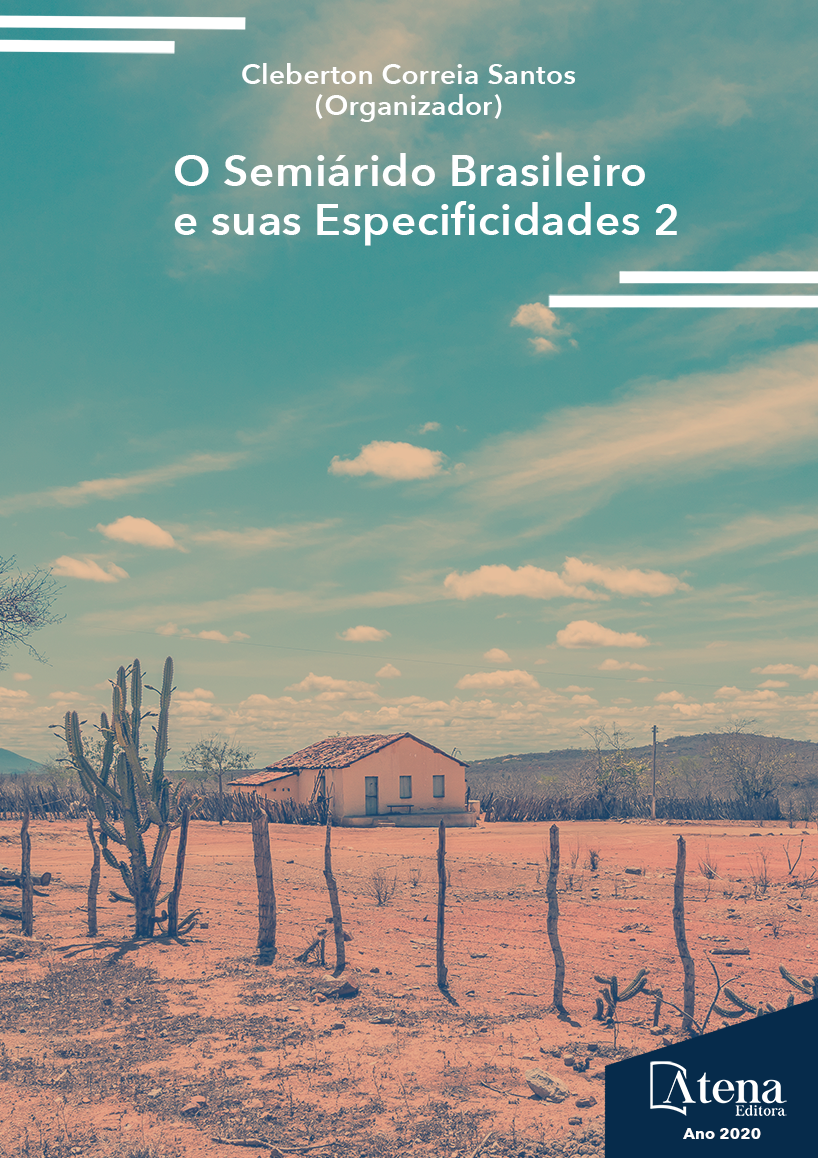
GESTÃO COLETIVA PARA CONVIVÊNCIA COM O SEMIÁRIDO: EXPERIÊNCIAS A PARTIR DO PROJETO DE REVITALIZAÇÃO DA PALMA FORRAGEIRA
O Semiárido Brasileiro tem na pecuária uma das principais atividades econômicas, sendo a cultura da palma forrageira, importante aliada. Em 2012, o INSA implantou em 26 municípios paraibanos o Projeto Revitalização da palma forrageira utilizando variedades resistentes à Cochonilha-do-Carmim, a fim de analisar o comportamento agronômico das variedades, multiplica-las e orientar a criação dos Gabinetes municipais. Em junho de 2017, iniciou uma análise dos impactos sociais desse projeto nas comunidades com a finalidade de entender como as famílias se apropriaram dos campos de pesquisa, da multiplicação e dos processos organizativos adotados a partir destes. O texto trata de uma breve discussão a partir dos resultados preliminares, do recorte da pesquisa, focando a experiência denominada de Fundo Rotativo Solidário de palmas, e da forma de organização social adotada para gestão do campo de multiplicação da palma no município de Soledade. Trabalhamos com a abordagem qualitativa, partindo da análise documental e bibliográfica, visitas de reconhecimento dos campos de palma do Projeto e comunidades circunvizinhas, associações, reuniões dos Conselhos Municipais, rodas de conversas entre famílias beneficiadas. Aplicou-se questionários a agricultores, entrevistas semiestruturadas com proprietários (onde foram instalados os campos) e com pessoas com participação ativa nas associações locais e também técnicos. Os dados revelam que o projeto cumpriu o objetivo de multiplicar as variedades resistentes. Nos municípios do Sertão, onde a cultura da palma antes era desconsiderada, agora já é uma prática, ainda que tímida. Dessa forma, mantem-se a discussão sobre a segurança forrageira como mais uma possibilidade de empoderamento das famílias agricultoras para a convivência com o Semiárido através de um processo de organização e autonomia.
GESTÃO COLETIVA PARA CONVIVÊNCIA COM O SEMIÁRIDO: EXPERIÊNCIAS A PARTIR DO PROJETO DE REVITALIZAÇÃO DA PALMA FORRAGEIRA
-
DOI: 10.22533/at.ed.7042027052
-
Palavras-chave: segurança forrageira; empoderamento; Fundo Rotativo Solidário; Cochonilha-do-Carmim
-
Keywords: Forage security; empowerment; Solidarity Rotating Fund; Carmine Cochineal.
-
Abstract:
The Brazilian Semi-Arid region has dairy farming, as one of the main economic activities and the forage palm crops is an important ally. In 2012, INSA implemented the forage palm revitalization project in 26 municipalities in Paraiba, using varieties resistant to Cochineal-of-Carmine, in order to analyze the agronomic behavior of the varieties, multiply them and guided the creation of the municipal offices. In June 2017, the social impacts analysis of this project applied on communities has started to aim an understanding of how families appropriated the research fields, the multiplication and the organizational processes adopted from these. The text handles a brief discussion based on the preliminary results, the research cut, focusing on the experience called the Solidarity Rotating Fund of palms, and the social organization form adopted to manage the palm multiplication field in the Soledade municipality. We work with a qualitative approach, starting from documentary and bibliographic analysis, visits for the Project palm field’s recognition and the surrounding communities, associations, meetings of the Municipal Councils, conversations between beneficiary families. Questionnaires were applied to farmers, semi-structured interviews with owners (where the fields were installed) and with active participation people in local associations and technicians. The data reveal that the project has fulfilled the objective of multiplying the resistant varieties. In the Sertão municipalities, where the palm crops was previously disregarded, it is now a practice, albeit a timid one. In this way, the discussion on forage security remains another possibility for the farming families empowerment to live with the Semi-Arid through a process of organization and autonomy.
-
Número de páginas: 10
- Jucilene Silva Araújo
- Jaqueline de Araújo Oliveira


